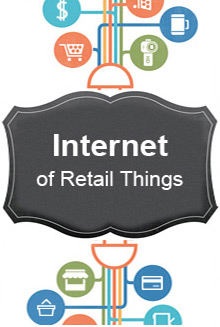The ‘Internet of Things‘ has created a lot of interest and hype over the recent few years. Declining device costs, widely deployed IP networks, and new regulatory mandates are fueling its importance. More than nine billion devices around the world are currently connected to the Internet, including computers and smartphones. That number is expected to increase to 50 billion devices within the next decade.
What really is IoT?
Our connected world now includes physical objects that are equipped with networked sensors and actuators that collect information from their environment and report statuses and even take action based on the information available. This is made possible through unique technology components that are employed by the Internet of Things:
- Services to provide implementable solutions for IoT tasks
- Software to manage IoT’s analytical engines and enable market solutions
- Hardware to capture location and status information
- Networks to provide connectivity
- Analytics Solutions to determine action on captured patterns
What Can IoT Do For Your Business?
Today, corporations are turning their attention towards the deployment of IoT solutions. This is unleashing a wave of new possibilities for data gathering and predictive analytics. Although the IoT is still in early stages of adoption, there are a variety of uses and portfolio of applications in existence already that can add great value to any business.
- Remote management of resources: With IoT, business can expect to remotely and accurately track, monitor and manage equipment. This gives them the opportunity to improve machine life through higher precision over controlling machine speeds and temperatures.
- From Customer Interactions to Customer Relationships: IoT solutions provide companies with the opportunity to conduct ongoing, long-term service relationships through the integration of remote monitoring devices, analytics engines and automized workflow management.
- Contest Commoditization: by integrating connectivity and smart devices into products, suppliers are able to gain high visibility of products allowing them to retain quality, loyalty and market position, resulting in an enhanced customer’s experience.
What Can IoT Do For Your Business?
It’s not all rosy however. Businesses considering implementation of IoT solutions should carefully evaluate privacy and security concerns. With IoT devices becoming more sophisticated every day, issues are bound to arise from the sensitivity of data being collected. Simply put, it is legally impossible to determine the outcome in a situation where there may be damage caused to any human from algorithms conducted by a machine. These issues need to be addressed by businesses and policy makers at the grassroots level and then by customers at the point of interaction. Businesses will need to maintain a liability towards information gathered and clear visibility towards how the information is being used. For customers, data security and network reliability are primary concerns. In finding the right balance while combining the digital and the physical world, the role of a human operator to overlook a machines ultimate conclusions, will be crucial.
Looking Ahead
The next wave of IoT development will move away from smart devices and networks to bring a special focus toward software applications and platforms providing prebuilt connectivity, security, management and analytical capabilities, the applications for which are endless. Through remote tracking, hospitals are able to monitor and accurately medicate chronic patients. Through remote machine control, power companies and water supply corporations could have positive controls over the environmental effects of greenhouse gas emissions, water wastage etc. Through smart sensors and devices authorities can transform traffic management in cities.
With the potential to be able to impact change beyond our understanding, together with the IoT, we can create the Digital World we wish to see.

Kiran Veigas handles Corporate Marketing at Happiest Minds. He has 14 years of industry experience spanning various roles in Marketing, Strategy, Product Management and Product Development in IT/Telecom. His educational qualifications include Executive Management Program (GMITE – General Management for IT Executives) from IIM-Bangalore and BE in Telecommunications Engineering.





